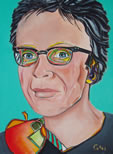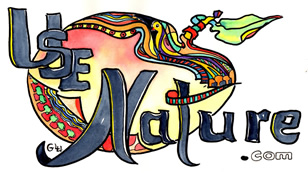useNature.com ... Sugar - Sweet Addiction
Article: Sugar - Sweet Addiction - Say No to Sugar!
Sugar - Sweet Addiction
Article by ... the editor of Use Nature, Dieter Luske N.D.-D.C.H.-D.M.H.-D.H
Author of It happened in the seventies
Sugar - Sweet Addiction ... is sugar a drug?
It may be argued that sugar addiction is not a real addiction, however, who really cares, the real problem is out there, most people and most products have too much sugar. Apparently we can't be without it ... or can we?
I wonder ..... if sugar would be a recent introduced product, would it be allowed for human consumptions? Or ... would it be classed as a drug, would it have to pass the TGA ? (Therapeutic Goods Act)
Obviously it is not therapeutic, at least not in a healthy way, but probably perfect as a prescription drug.
Please excuse my cynical comment, but sugar could be perfect as a prescription drug:
-
Short term gain of energy
-
Feeling good, lifting depression
-
Needs many repeats
-
Addictive - can't be without it
-
Leads to the prescription of other drugs to counteract the side effect of the first one.
Anyhow.... fun aside, lets get more serious.
If you could choose a phobia, choose a 'sugar phobia', it's good for you, it stops you from eating sugar.
In recent years or decades, lots of people have become fat phobic, but that hasn't helped them losing weight, because taking out fat from the diet is not the main weight gaining culprit. Therefore, I am afraid, the fat phobia is useless, people should choose a sugar phobia instead, that would be doing much more good. I hereby declare the next year to be the "sugar phobia year".
Ffurthermore, I will predict, that the average person will lose 5 kg within the first 3 month, just by cutting out sugar.
Sorry about the sugar farmers and the sugar industry, it's the old story, " every action has a reaction", which usually causes some collateral damages.
How does one ever find the true balance.
However, sugar may still be grown for other reasons such as for the production of ethanol, or simply change the crop and grow coconuts for coconut oil ..or Hemp a crop very well suited, or any other suitable crop.
Say NO to Sugar!
Therefore, may I suggest to slow down on sugar, seriously, cut it out as much as possible..
If we truly would be in control of our sugar consumption, we would be fine, but unfortunately, sugar has crept into absolutely everything, it's hard to get away from. And there is enough evidence to suggest that as more sugar you have, as more you want.
If it is not a sugar addiction, than it is a sweet tooth addiction.
Do food manufacturers play with that?
Is sugar deliberatly added to products for people to become addicted to sweeter products?
I don't believe in conspiracy, but it is obvious that the supermarket shelfs are loaded with addictive foods, everything is sweet, salty or extra spicy, all addictive, great marketing ploy, and all extremely bad for our health ....
... something is wrong here.
The only real way to avoid sugar is to get on to a well balanced natural type of diet, meaning, to cut out processed food and stick to fresh and unprocessed foods. - There is no need to switch to an alternative sweetener, and as you may know already, artificial sweeteners may be worse than sugar.
Once we understand that sugar is simply a "taste" addiction, which we have introduced for taste gratification, and certainly not for nutritional values, we may just as well admit we have been sucked in, we have become taste conditioned.
How can we Stop Sugar over consumption?
Go cold turkey; for about 7 to 10 days have no sugar at all, including honey, sweeteners etc. . After that, your taste buds will be responding to natural sweetness in vegetables and other food sources. The need for sugar will be gone, bye bye sugar - FREE AT LAST.
Why is sugar bad?
First of all, and to repeat myself, it is the overconsumption which is bad, because it is contained in nearly everything we eat, which means it is out of our control.
Sugar is the number one contributing factor of weight gain, and in addition it is detrimental for blood sugar problems including diabetics, and because of metabolic processes, it is negatively associated with high blood pressure - cholesterol - skin problems - stress problems and much more, there is no metabolic function where sugar is not involved.
See here some related articles which mention sugar as part of the problem:
-
Hypertension - High Blood Pressure seems to sneak up on us more and more.
-
Optimal Nutrition - Nutrition means the raw material which nature requires for building and constantly re-building the cells of your body.
-
Metabolic Syndrome - Australia is now officially the fattest nation in the world, with more than nine million adults classified as obese or overweight.
-
Type 2 Diabetes - Lifestyle Disease - as the name suggest are preventable by Lifestyle Changes
Re-think sweetness
Most natural food sources are well tolerated in the unrefined form, but once refined and specific parts are extracted, adverse re-action can occur. Our systems are simply not designed to metabolise refined foods in a healthy beneficial way. And just to drive this message home, refined sugar and the taste of sweet stimulates the brain by activating beta endorphin receptor sites. These are the same chemicals activated by heroin and morphine !
Remember, replacing one sweetener with another, keeps the sweet addiction alive.
Lets go for a different health, and pleasant taste altogether.
If you like sugar in your coffee, try some Cinnamon instead, the amount may not lead to a huge health benefit, but Cinnamon is good for you and makes the coffee less bitter, which is one reason people like to add sugar.
Here is one of my favourite, Coconut Oil, and yes, you can add it to your tea or coffee, as well as to stir fried veggies, bake with it, it can be used everywhere, it just add's a nice flavour, perceived as sweet.
Nutmeg is another spice which adds a sense of sweetness, and adding fresh fruit to salads or breakfast cereals also should eliminate the need for adding sugar.
By the way, to enhance the sweetness of fruits, simply heat it slightly.
What about sweeteners?
My preferred choice is not use any replacements ..however, as far as I am aware, there are only a few "natural" sweeteners thath are actually healthy, like Xylitol or Stevia just to mention two.
What is Xylitol?
Xylitol is a naturally occurring carbohydrate, commonly extracted from the bark of the birch tree. It also occurs naturally in our bodies – in fact, an average size adult manufactures up to 15 grams of xylitol daily during normal metabolism.
How can something that looks like sugar and tastes like sugar actually be good for you?
Xylitol prevents cavities by promoting the remineralisation of tooth enamel, therefore it is widely recognised as a cavity fighter.
In addition, the body does not require insulin to metabolise xylitol, which has made it a widely used sweetener for the diabetic diet in some countries.
What is Stevia?
Stevia is a plant, commonly known as sweet leaf, grown for its, you guessed it ... sweet leaves. It is used as a sweetener and it's up to 300 times sweeter than sugar. Stevia like Xyltol has a negligible effect on blood sugar, great for people who have to be on a low carbohydrate diet. It has a slightly bitter aftertaste.
What about artificial Sweeteners?
Generally, I am against all artificial sweeteners, because they seem to do more harm than good.
Differentiation of Sugars
There is a lot of confusion about sugar terminology. - I used to make it extremely easy for my patients when I explained about diets.
Instead of differentiating between all these different kinds of sugar, I just said: "See the word Carbohydrates, just as a fancy word for Sugar",
and when reading a food label, "remember that the carbohydrate content means basically Sugar".
However, there are profound differences - the different sugars:
1. Sucrose: ... comes from sugar beets or sugar cane and it's what is know as table sugar. It's a disaccharide made up from glucose and fructose.
2. Fructose, is fruit sugar. - Most of us receive fructose from vegetables and fruits, where it comes with plenty of fibre and lots of beneficial nutrients. The estimated general consumption of fructose from a good balanced diet is about 15 grams per day. - However if you add processed food, baking goods, soft drinks etc.; the amount of fructose may rise up to about 80grams per day.
This demonstrates that fructose itself is not bad -- it is the excessive amounts which causes health problems.
Fructose is the sweetest sugar, is used extensively in commercial products for that very reason.
Unfortunately it has some different metabolic pathways than glucose, which can lead to some common health problems.
Whereas Glucose is needed by every cell in your body and utilised and burned up immediately, Fructose is turned into free fatty acids which is stored as fat.
With other words, Fructose will increase fat storage, may cause insulin resistance and metabolic syndrome and lots of other health problems.
3. Lactose is Milk sugar - least sweet - often a cause of allergies.
4. Maltose is malt sugar - found in germinating seeds, such as barley. It is a di-saccharide, not a mono-saccharide like glucose.
5. Glucose a mono-saccharide a simple sugar, also known as dextrose or grape sugar.
Glucose is our primary source of energy. Every cell in your body, needs it, if fact, we can't be without it, actually no living organism can be without glucose.
Glucose is also the primary source of energy for the brain. When glucose is low, psychological processes will be impaired.
This is where the sugar confusion start - with the question:
'If Glucose is that essential, it must be good for us, why don't we eat more of it?"
Good question, and the answer is;
......
because it needs to be sourced from an unrefined food source (Carbohydrate) and slowly broken down, in order to be assimilated into our system without negative metabolic side effects.
Rather than explaining the chemical process, here is a useful metaphor.
Imagine heating your house by means of a nice fireplace. For long lasting heat, you would use dry hard wood.
However, if you would use a "refined" source, like Petrol, and add this to your fire, you probably blow up your fire place.
It's the same with our bodies, a good balanced unprocessed diet represents the hardwood, and sugar is represented as petrol.
With other words, by eating sugar you blow yourself up.
It is easy to see, how keeping glucose levels within a normal range is extremely important to health.
When glucose levels in the bloodstream aren't properly regulated, one can develop serious conditions, such as diabetes.
When glucose is too high in the brain, you are high as well, which is frequently observed at kids birthday parties after a sugary feast.
.. enough of this ...
... lets bring it down to the lowest common denominator ... "DON'T EAT SUGAR"!
It's much too hard to constantly read every label and find out what sugar or how much is used, it is much easier and healthier to simply restrict your refined carbohydrate intake along with any form of sugar.
Please post comments on our Facebook Page
Article supplied by the editor of useNature - Dieter Luske
* Disclaimer - Any general advice given in any article should not be relied upon and should not be taken as a substitute for visiting a qualified medical Doctor.
 Dieter Lüske - Editor
Dieter Lüske - Editor
N.D.-D.C.H.-D.M.H.-D.H
Buy Now
It happened in the seventies
Intriguing story of personal risk-taking, self-discovery and profound change.
Dieter Luske
author . writer . editor
Facebook Groups:
Sticker
Food under the
Microscope
© 1998 - 2025 useNature.com: Australia - Dieter Luske - Writer - Creative Lifestyle Portal - Natural Holistic Health - Books & Art -



